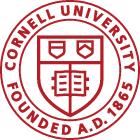The field provides rich, interdisciplinary opportunities in research and education leading to the Ph.D. degree in Biomedical Engineering. It integrates engineering and the life sciences to prepare students for diverse careers in academe, industry, and government. The field focuses on both the molecular and macroscopic aspects of biomedical engineering and comprises five research areas: biomedical instrumentation, drug delivery, design and metabolism, biomaterials, computational and systems biology, and medical biomechanics. Facilities commonly used include the Cornell Nanofabrication Facility, the NSF STC in Nanobiotechnology, the Cornell High-Energy Synchrotron Source (CHESS), the Cornell Theory Center, the Cornell Center for Advanced Technology in Biotechnology, and the programs in the Department of Biomechanics and Biomaterials at the Hospital for Special Surgery, the Orthopedic Affiliate of the Cornell Medical College.
It is anticipated that students entering into the field of Biomedical Engineering will have received formal training in a recognized sub-discipline of engineering. Students obtain thorough training in biomedical engineering research. They also master the Ph.D. course work for a minor in a traditional engineering discipline and another minor in an area of the life sciences. Formal course work in the major includes a two-semester course in the Foundations of Biomedical Engineering, advanced BME analysis of biological systems, at least one other advanced course in bioengineering, and required seminars. Further, PhD students are expected to complete a six week immersion experience in medical research and clinical practice at Weill Medical College, as well as completing a graduate student teaching experience. M.S. students complete the Foundations in Biomedical Engineering course, two semesters of seminars, and typically four to five additional courses in engineering and the life sciences. These requirements are subject to revision.
Cornell biomedical engineers implement multidisciplinary and multi-scale strategies that combine advanced high resolution imaging, biophysics, microfabrication, genetic modifications, protein engineering, and quantitative modeling to analyze and manipulate cell and molecular dynamics and interactions. We are motivated by the goal of uncovering the details of normal cell functions and disease processes, improve diagnostics, and develop novel therapeutic approaches. Cornell's world-class expertise and resources include: the Cornell NanoScale Science & Technology Facility (CNF), the Cornell Center for Immunology, the Biotechnology Resource Center, the Cornell Physical Science Oncology Center, and Cornell's top-ranked veterinary school and medical school synergize to create an ideal environment for research in Molecular and Cellular Engineering.





